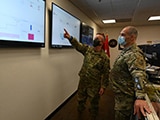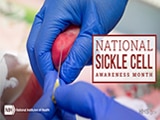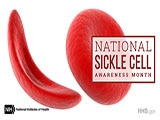Fostering Minority Scientific, Health and Human Services Ventures at HHS
Dr. Walter Koroshetz, director of the National Institute of Neurological Disorders and Stroke (NINDS), goes on the road to Milwaukee next month to talk to scientists and their business partners about the $980 million in seed money at HHS—mostly through NIH — available for aspiring small businesses with innovative ideas for promising life-saving technology.
Small companies also can get help from the HHS Office of Small and Disadvantaged Business Utilization (OSDBU), which hosts monthly Vendor Outreach Sessions to help them learn how to do business with the department.
“We think there are longstanding benefits to our country. The more kinds of people you can get involved, the better we can fulfill our mission,” Dr. Koroshetz said, adding that the diversity of ideas is critical, particularly to good science.
“One can not predict where the next great idea will come from. We want to find the best science,” added Stephanie Fertig, director of NINDS small-business programs. “We want to increase representation of those who have been under represented.”
The Milwaukee conference, where Koroshetz will be the key note speaker, brings together hundreds of small businesses with program managers at NIH, as well as the Food and Drug Administration, the Centers for Disease Control and Prevention and NASA. The seed money in question is through Small Business Innovation Research (SBIR) and Small Business Technology Transfer (STTR) grants and contracts. There are 11 federal agencies with SBIR programs, of which five also have STTR programs. The SBIR and STTR programs created by Congress in 1982 and 1992, respectively, are coordinated by the Small Business Administration. The overall combined federal SBIR and STTR programs have $2.5 billion available to small businesses.

The HHS SBIR/STTR programs are a key source of capital for small American businesses that are trying to create innovative, life-saving technologies to improve health but are too young to acquire capital through traditional financing. This early stage capital, and rigorous NIH vetting to qualify for the grants, help the small businesses obtain the data to show the feasibility of their products—and eventually attract attention from other financial backers and larger biotech companies, Fertig said.
Koroshetz sees it like a two-part process: He says NIH has robust programs to recruit minority and women scientists, and, then through SBIR grants, helps those with an entrepreneurial bent to get their businesses off the ground.
“To get the science to the patient, there has to be a handoff to a commercial entity These grants help get science out of the lab,” he said.
Meetings such as the annual NIH SBIR/STTR conference, the national SBIR Road Tour and vendor conferences hosted by OSDBU give aspiring small businesses valuable opportunities to network with federal program specialists and learn about government grant and contracting opportunities.
During fiscal 2017, OSDBU hosted 537 small businesses – 309 of which were designated “Small Disadvantaged Business” and/or “HUBZone” – at its vendor outreach sessions, which provide companies the opportunity to discuss their capabilities with HHS small-business specialists. OSDBU also hosted four events in Maryland, Washington State and Alabama, which included workshops and counseling sessions with HHS representatives, large prime contractors, and other federal agencies.
One small minority firm noted in a letter to OSDBU that learning how to do business with HHS during one of the vendor conferences last year helped the company secure a three-year contract. The company president wrote: “We have experienced government agency networking at its best.”
#YoSoyHHS: Viajando por el mundo para luchar contra el VIH/SIDA
Medicare Appeals Precedent Rule


